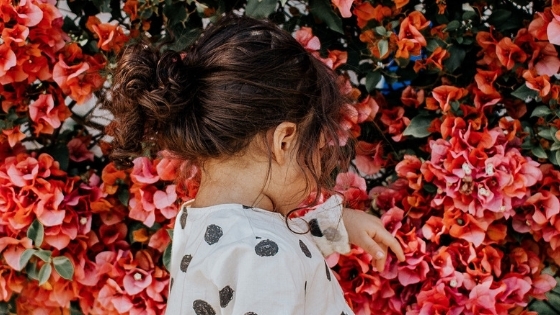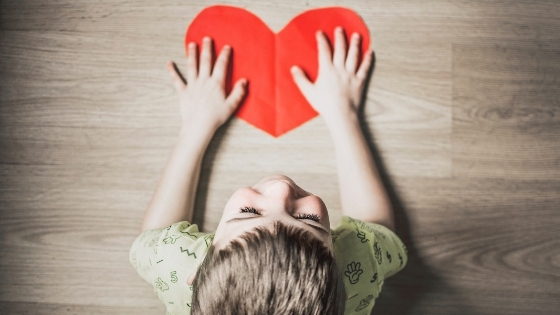A child coughing may indicate a respiratory illness. If you have kids at home, you should bear in mind that they can get sick at any moment and, as a parent, it’s your duty to prevent this from happening.
Although the human body has a natural defense system to protect the lungs and the rest of the respiratory system, it’s still essential to keep diseases at bay especially when it comes to young kids.
Here’s what you can do to protect and keep your children’s lungs healthy.

1. Stop smoking
Even if your kids don’t puff cigarettes, exposure to secondhand smoke can still damage their lungs. Cigarette smoke narrows air passages which then makes breathing difficult. It also causes swelling in the lungs or chronic inflammation which can lead to chronic bronchitis.
If you smoke, it’s certainly never too late to quit and keep your kids away from the dangers of secondhand smoke. Not smoking is the best thing you can do that will both benefit you and your children.
2. Encourage good hygiene
Colds and other chesty cough symptoms can become serious. To protect your kids, you can start by encouraging good hygiene to prevent infections. Be a role model and inspire your children to make the following a habit:
- Wash hands often with soap and water, especially before meals. If there’s no opportunity to wash, use alcohol-based cleaners sparingly as a substitute.
- During colds and flu season, avoid areas with huge crowds such as busy streets, malls, movie theatres and supermarkets.
- Brush teeth twice a day and visit the dentist at least once every six months to prevent germs in the mouth from proliferating and leading to infections.
- Cover the nose and mouth when coughing or sneezing to prevent the spread of germs.
How to properly wash hands
To ensure that your kids are washing their hands correctly, teach them how it’s done.
- Lather the entirety of both hands with soap including the back, in between fingers, and under the nails.
- Scrub hands for a minimum of 20 seconds then rinse with water.
You have to make sure your faucets are clean, too, since dirty faucets can harbor bacteria as well. Even if you wash your hands properly, you will have to touch the tap to turn the water off.
3. Get regular check-ups
Letting your children get regular check-ups will help prevent disease even if they’re feeling well. This is quite crucial for respiratory health which sometimes goes unnoticed until it’s serious. During a health check-up, the doctor will listen to your child’s breathing and may prescribe some medications such as cough syrup to alleviate his or her condition.
If one of your children is sick, protect your other kids by keeping distance. Let your sick kid stay home from school until he or she feels better.

4. Ensure adequate sleep
Getting plenty of sleep helps your child’s body prepare to combat diseases and illnesses. The same notion extends to your kids’ respiratory health. Lack of sleep will not only open the door for new respiratory conditions but also make current symptoms even worse.
If you have a toddler, make sure he or she gets roughly 11 to 14 hours of sleep. For school-aged kids, they need 9 to 11 hours of slumber.
5. Have routine physical exercise
Nowadays, with gadgets taking over traditional games, it becomes harder to convince children to go outside and play.
Outdoor games are actually a form of exercise for kids and are an integral part of respiratory health. With routine physical activities, you can help your kids develop stronger lungs capable of warding off respiratory health conditions.
6. Provide healthy food
Food has a huge impact on the overall health of your children. Providing your kids nutritious foods will strengthen their defenses against respiratory diseases and pollution.
As much as possible, arrange for a daily diet plentiful in vegetables and fruits. This will give your kids the best chance at absorbing all the vitamins needed by the body for good health. Also, teach your children healthy eating habits so that they continue to improve their health as they grow older.
7. Maintain a clean home
Mould, air fresheners, construction materials, pet dander all pose potential respiratory problems to your kids. Exposure to indoor air pollution at home should be reduced. Below are some useful tips to follow:
- When cooking, remember to turn on the exhaust fan.
- Avoid using aerosol products such as hairspray and insecticides.
- Change air filters seasonally.
- Vacuum and sweep often to control dust.
Diseases can happen but they can be prevented. Let your kids enjoy the best of their youth by making sure they grow healthy and strong.
 Kaboutjie SA Mommy Blogs by Lynne Huysamen
Kaboutjie SA Mommy Blogs by Lynne Huysamen




